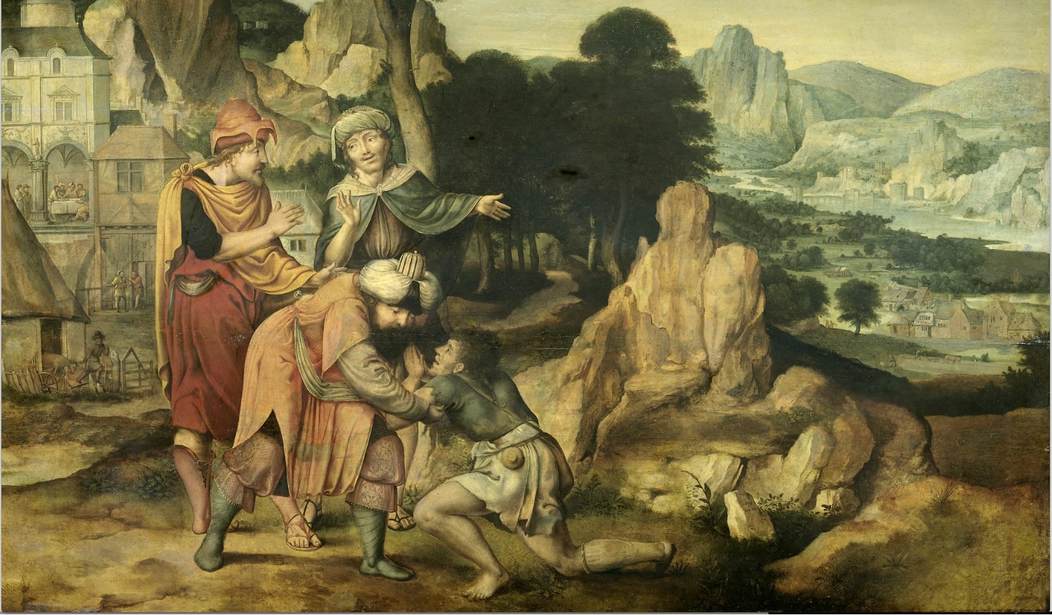There are so many things about our Christian life that are encouraging or heartwarming to talk about. On the surface, repentance isn’t one of them, but it’s crucial to our walk.
I recently heard a podcast where host Barry Cooper talked about repentance and what it means for us. Cooper used the story of Zacchaeus as his example:
[Jesus] entered Jericho and was passing through. And behold, there was a man named Zacchaeus. He was a chief tax collector and was rich. And he was seeking to see who Jesus was, but on account of the crowd he could not, because he was small in stature. So he ran on ahead and climbed up into a sycamore tree to see him, for he was about to pass that way. And when Jesus came to the place, he looked up and said to him, “Zacchaeus, hurry and come down, for I must stay at your house today.” So he hurried and came down and received him joyfully. And when they saw it, they all grumbled, “He has gone in to be the guest of a man who is a sinner.” And Zacchaeus stood and said to the Lord, “Behold, Lord, the half of my goods I give to the poor. And if I have defrauded anyone of anything, I restore it fourfold.” And Jesus said to him, “Today salvation has come to this house, since he also is a son of Abraham. For the Son of Man came to seek and to save the lost.”
Luke 19:1-10 (ESV)
Everyone despised Zacchaeus. Tax collectors were sellouts to the Jewish people of the New Testament. They did the bidding of the Roman Empire and lined their own pockets at the same time. Imagine an IRS agent on steroids — or the ridiculously increasing prices of tax software for that matter.
But Jesus didn’t despise Zacchaeus. That’s why He saw the wee little man in the tree and called him down. That act changed Zacchaeus.
Related: Sunday Thoughts: A Remarkable Example of Forgiveness
“That’s what repentance looks like,” Cooper comments. “It’s a realization of the seriousness of our sin. It’s a joyful realization of God’s mercy in Christ. It’s a turning from our sin in disgust and a turning towards obedience, whatever that obedience costs. It’s a visible sign that we are truly saved. As Jesus says to Zacchaeus when He hears what Zacchaeus plans to do, ‘Today salvation has come to this house.’”
Cooper adds that repentance is the fruit of our salvation that stems from the Holy Spirit’s conviction of our sin. He notes that repentance “shows that our faith in Christ is genuine.”
I think some people consider repentance a one-and-done deal that happens when they first come to faith in Jesus. Instead, we should think of it as one of our daily spiritual disciplines.
“And just to be clear, repentance isn’t a one-shot deal,” Cooper points out. “It’s not something we do once at the beginning of our Christian lives and then move on from. It’s a daily discipline; a way of life. As Martin Luther said, ‘Our Lord and Master Jesus Christ, when he said 'Repent,' willed that the whole life of believers should be repentance.’ We’re never so free of sin that we can be free of repentance.”
The parable of the prodigal son is another example of repentance in Luke’s gospel. The prodigal receives forgiveness and a warm welcome when he comes home, repentant for abandoning his family and squandering his inheritance. Twice in the parable, the father — Jesus’ stand-in for God the Father — remarks that his son “was dead, and is alive again; he was lost, and is found.”
Cooper concludes:
What if we ourselves have become aware that we need to repent of something? Let’s waste no time, and turn back from the far country. If we’ve sinned against someone else in some way, with our words or actions, we should express our remorse to that person and ask for forgiveness. As well as honoring Christ, and restoring a deeper intimacy with the Father, that act of repentance has the power to bring deep healing to the person we’ve sinned against, and also deep healing to us.
My prayer is that we can all find the freedom and healing that comes from repentance.









Join the conversation as a VIP Member